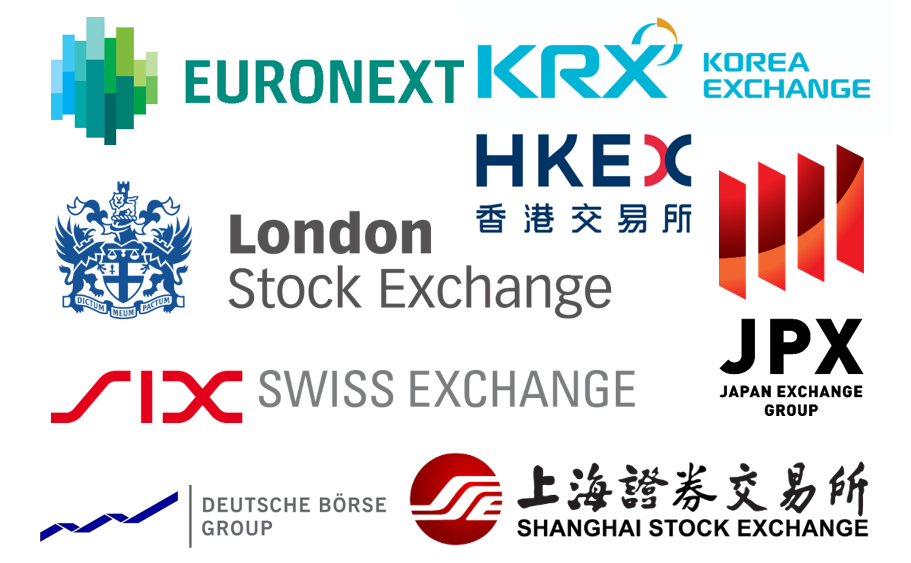World Shares Mostly Higher; S&P 500 Futures Flat, Dow Futures Edge Better

By Elaine Kurtenbach
BANGKOK (AP) — Global markets were mostly higher on Thursday as investors pinned their hopes on an economic rebound from the coronavirus pandemic.
As investors prepared for latest weekly report on U.S. jobless claims, shares rose in Paris, London and Tokyo but dropped in Hong Kong, where tensions are flaring over Beijing’s effort to exert more control over the former British colony.
Germany’s DAX gained 0.5% to 11,711 and the CAC 40 in Paris climbed 0.5% to 4,731. Britain’s FTSE 100 picked up 0.8% to 6,192. The future for the S&P 500 was up 0.1% while the future for the Dow industrials gained 0.5%, auguring early gains on Wall Street.
A new report in the U.S. is expected to show that millions more likely filed for unemployment benefits last week after nearly 39 million sought aid in the previous nine weeks as the coronavirus paralyzed the economy.
The pace of layoffs has declined for seven straight weeks, a sign that the cratering of the job market may have bottomed out. By historical standards, though, the number of weekly applications remains enormous.
Meanwhile, recent developments over Hong Kong are keeping markets on edge, particularly in Asia.
Two pro-democracy lawmakers were ejected from Hong Kong’s legislative chamber Thursday morning, at the start of a second day of debate on a contentious bill that would criminalize insulting or abusing the Chinese national anthem.
China’s ceremonial legislature approved a national security law Thursday, overriding protests from critics who say it could further undercut semi-autonomous Hong Kong’s civil liberties.
On Wednesday, U.S. Secretary of State Mike Pompeo told Congress the Trump administration no longer regards Hong Kong as autonomous from mainland China. That sets the stage for the U.S. to withdraw the preferential trade and financial status Hong Kong has held since it reverted to Chinese rule 23 years ago.
While Hong Kong’s role as a regional trading center and financial hub has been to a large extent sidelined by developments on the Chinese mainland, removing its special status would be a huge blow to businesses located in the city because of its independent financial and legal systems.
With U.S. Commerce Secretary Wilbur Ross saying President Donald Trump has a “‘whole menu’ of options, the market is on edge to hear exactly what those measures are, and how China absorbs them,” Chris Weston of Pepperstone said in a commentary.
“This is a risk for markets and the situation is clearly fluid — one questions if the equity markets are too complacent here?” Weston said.
Hong Kong’s Hang Seng index lost 0.7% to 23,132.76, while the Shanghai Composite index gained 0.3% 2,846.22.
Tokyo’s Nikkei 225 index jumped 2.3% to 21,916.31, lifted by the latest, $1.1 trillion, infusion of stimulus for Japan’s moribund economy. India’s Sensex gained 1.6% to 32,114.81, despite news of another record increase in the number of new coronavirus cases. The S&P/ASX 200 in Sydney climbed 1.3% to 5,851.10.
South Korea’s Kospi edged 0.1% lower after health authorities reported 79 new cases of coronavirus in the latest setback for the country’s recovery from the pandemic.
That news undid any boost from the South Korean central bank’s decision to lower its policy rate to an all-time low of 0.5% to soften the pandemic’s shock to the country’s trade-dependent economy.
The Bank of Korea has said the economy may shrink for the first time in 22 years. Its rate cut followed another two months ago, which was its first since 2008.
In other trading, bond yields were mixed. The yield on the 10-year Treasury slipped to 0.68% from 0.69% late Wednesday.
U.S. crude oil for delivery in July lost 23 cents to $32.58 per barrel in electronic trading on the New York Mercantile Exchange. It fell $1.54 on Wednesday to settle at $32.81 per barrel. July Brent crude, the international standard, gave up 11 cents to $35.34 per barrel.
The dollar bought 107.75 Japanese yen, up from 107.72 yen late Wednesday. The euro slipped to $1.1001 from $1.1006.
___
Source: AP News



